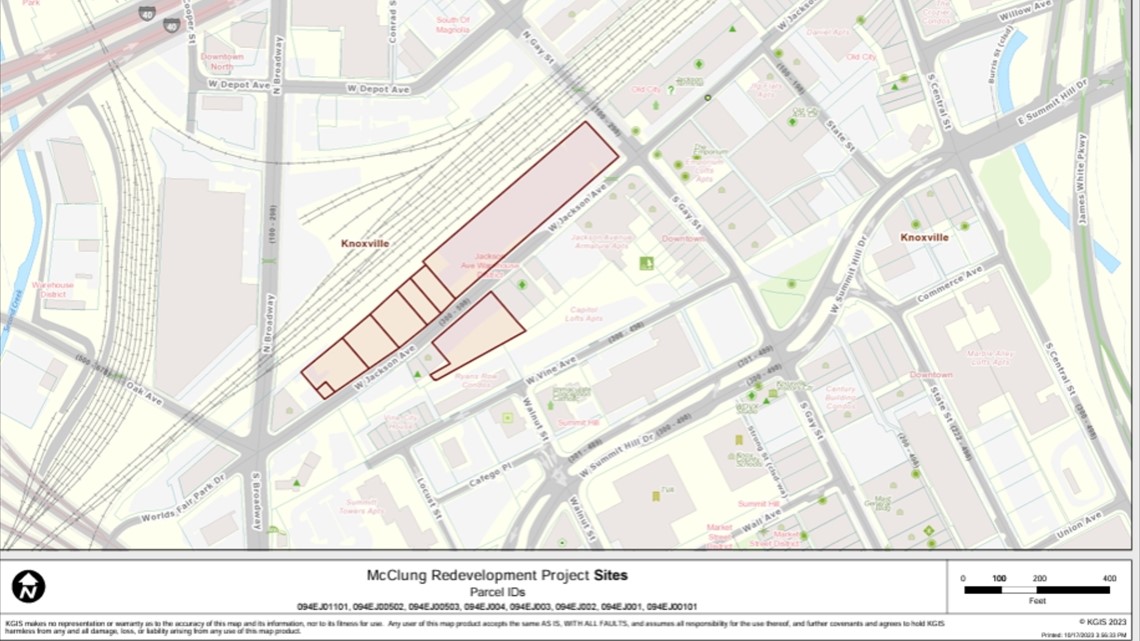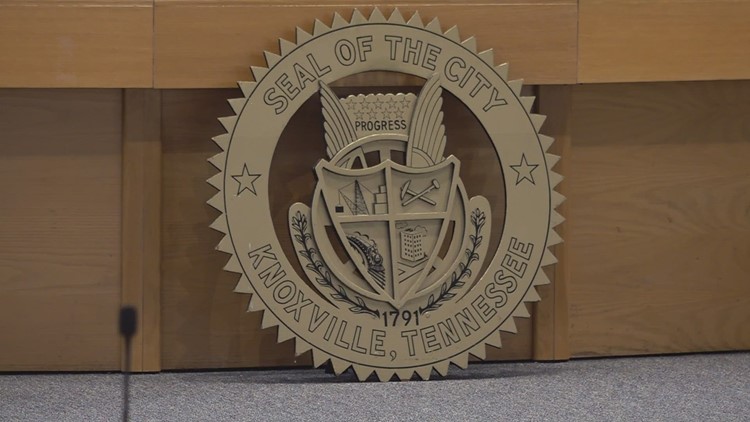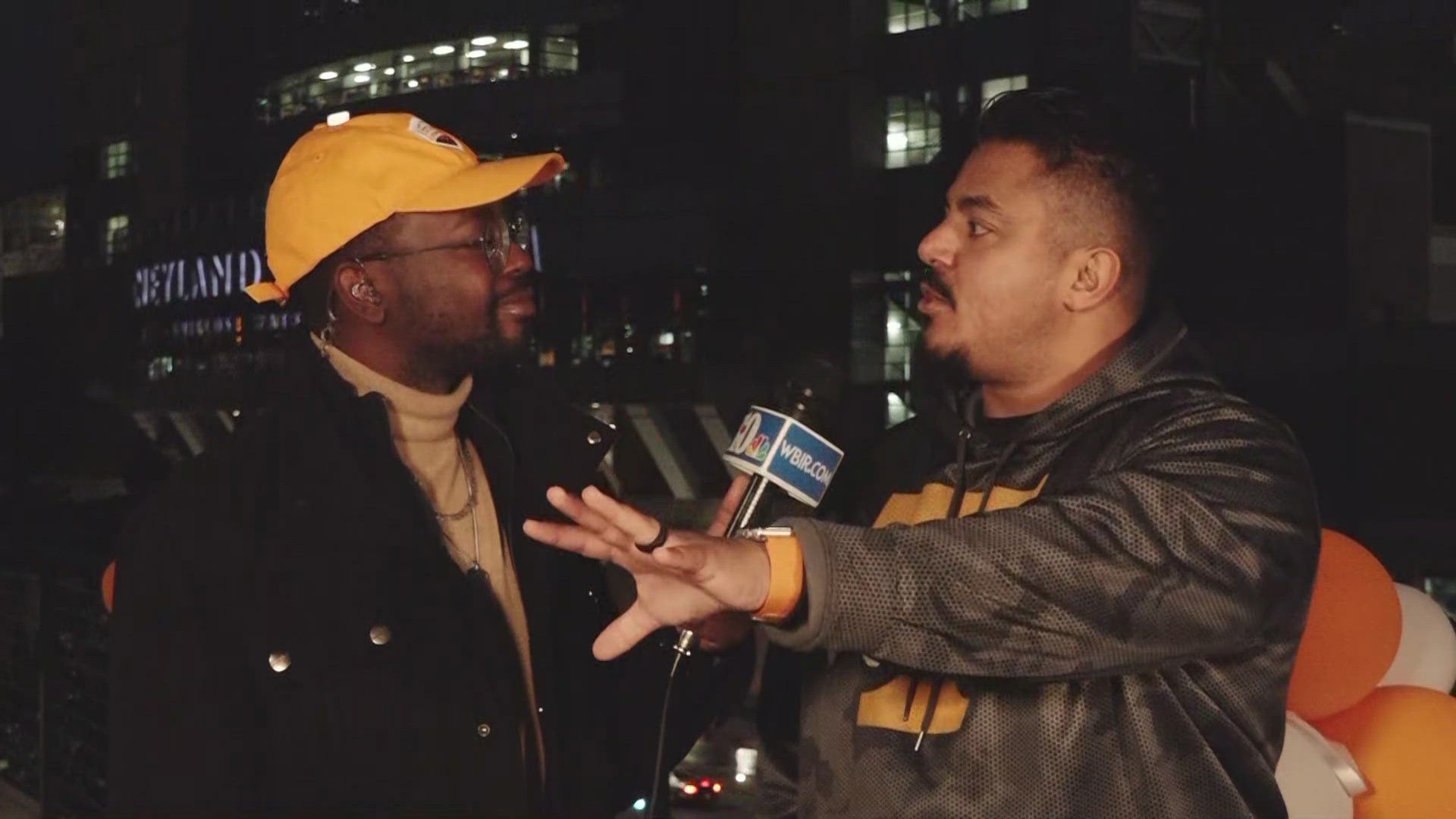KNOXVILLE, Tenn. — The Knoxville City Council met on April 16 to discuss its regular agenda. There were two significant proposals on that agenda.
One adds new restrictions for food delivery robots in city limits, effectively barring them from operating in most areas of the city due to concerns that Knoxville doesn't have the infrastructure to support them.
The other proposal effectively gives the old McClung Warehouse site to Knoxville's Community Development Corporation — one of many steps as the city works to redevelop the site.
Both proposals passed on Tuesday. Additional information about the proposals is available below.
A proposal on Knoxville City Council's agenda effectively transfers eight parcels of land covering around four acres to Knoxville's Community Development Corporation. The sites span some of W. Jackson Avenue near the Old City area, mostly covering the side of the road near railroad tracks. One parcel of land is included on the opposite side of the road.
The parcels used to be the site of the old McClung Warehouse building. Around a decade ago, the building caught fire and was torn down. Since then, the site has sat empty along a rising hill. The city has since been trying to figure out how the site can be used.
In November 2023, leaders hosted a public input event to gather ideas about how the site should be used. It also organized an online survey so people who couldn't attend the meeting could still share their ideas.
"I think it's pretty cool to hear from the community because sometimes there are ideas that are just, 'Wow, we never thought of that,'" said Ben Bentley, the KCDC CEO. "And other times, they kind of confirm what a lot of people suspected."


Those ideas included facilitating additional transit, building new vehicle access and parking, adding space for electric scooters and bike share, or providing new greenways Some also suggested it could be used as commercial or retail space, as a parking garage, as a place to provide community services or as residential space.
Community members also floated ideas to use the site as a play area for children, as a spot to highlight the Old City's history or as a public art installation.
According to a report released in March, community members mostly said they prioritized either having a public gathering space or putting the land to use by building retail, residential or parking facilities.
Before the city can pursue any kind of "mixed-use redevelopment" for the area, the city said it needed to transfer the property to KCDC. After ownership is transferred, the city said KCDC would start redevelopment work.
That work includes conducting market research, environmental studies, and other things. Then, it will advertise to developers who want to propose a plan. It will then take the public's opinions along with their other research to decide which development plan to go with, which Bentley says could be announced in early 2025.
Construction may begin in 2027.
The city said in October 2023, leaders adopted a six-month moratorium on Personal Delivery Devices — autonomous robots that usually pick up food from vendors and carry it to customers. They are mostly used on the University of Tennessee campus as a means of food delivery.
"As new technology starts to exist in different cities, we look at what's happening in other cities and say, 'Oh, that's technology that could be coming to Knoxville,'" said Carter Hall, the director of Strategic Policy and Programs of Knoxville. "We had to take a look at, you know, the city and understand how these [robots] might interact with city infrastructure, people who would use them."
During the moratorium, the robots could operate on campus but couldn't be operated in other parts of the city. On Tuesday, the city may take a step towards permanently banning the robots on Knoxville's streets, sidewalks and right-of-ways.
"The sidewalks tend to be significantly narrower than you might see with newer sidewalks or sidewalks on UT's campus," Hall said. "Those are also parts of town where we have a lot of cutouts for things like patios, tree planters, or streetlights that are actually embedded into the sidewalk."
The city said during the moratorium, city staff researched how the robots operated and assessed whether they would fit with the city's existing infrastructure. The city said staff consulted with businesses, UT, and the Mayor's Council on Disability Issues about the delivery robots.
"After this research and discussion, City staff members have concluded that the existing infrastructure in areas most likely to be used for PDD operations is not appropriate for PDDs to be safely and conveniently operated. As such, the recommendation is that an ordinance be adopted to prevent PDDs from being operating on City ROW to prevent infrastructure impairment and pedestrian issues," the city said.
If passed, delivery robots could continue to be operated on streets owned by UT and other non-city right-of-ways.
Tuesday's vote would be the first reading of the ordinance. Usually, ordinance proposals need to pass on second reading before going into effect.
Hall said there are other ways the city has tried to make it easier for people in Knoxville to have food delivered.
"We have spots that are designated for somebody to be able to pull up, just put their flashers on, run in, get their food and come back. Delivery drivers can utilize that," Hall said. "If we didn't move forward with a prohibition on the books, we kind of have the Wild West, regulatorily, so we felt that it was important to move forward with this now. But, we do want to be open for that in the future."



